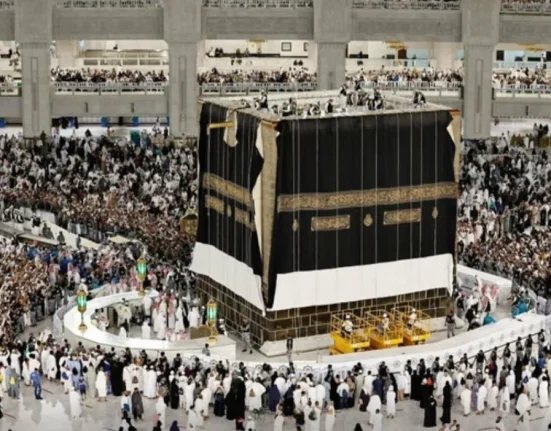Inspired by Abdul-Ganiyy Raji | Written by Akinola Alimot
The Yoruba people, one of Nigeria’s major ethnic groups, are deeply rooted in a rich cultural heritage that has evolved over centuries. From their modes of greeting, food preferences, and dress patterns to their rites of passage like marriage and chieftaincy installations, Yoruba culture remains a vibrant expression of identity. However, the delicate intersection of culture, religion, and tradition has often stirred public debates—especially on matters of leadership, particularly when kings (Obas) are involved in religious-cultural controversies.
What is Yoruba Culture?
Yoruba culture is the totality of the people’s way of life, encompassing their values, customs, foods, greetings, clothing, music, and social norms. It is not a religion but a cultural system through which the Yoruba people express their identity and relate to their environment.
Examples of Yoruba cultural expressions include:
Greetings: Men prostrate (dọbalẹ̀), while women kneel (kúlẹ̀) to greet elders, symbolizing respect.
Foods: Popular Yoruba dishes include amala and ewedu, iyan (pounded yam), ofada rice, moin-moin, and assorted soups like ogbono, egusi, and ẹfọ riro.
Clothing: Traditional attire includes agbada or bùbá and ṣòkòtò for men, and iro and buba, gele, and iborun for women.
Marriage Rites: Traditional weddings often feature the introduction (idana), engagement ceremony, dowry presentation, and family blessings.
What is Yoruba Religion?
Yoruba religion, often referred to as Ìṣẹ̀ṣe, is the indigenous spiritual belief system of the Yoruba people. It involves the worship of various deities known as Orisha, who are regarded as intermediaries between humans and the Supreme Being—Olódùmarè.
Prominent Orishas include:
Ogun – deity of iron and war
Sango – deity of thunder
Obatala – deity of purity and wisdom
Esu, Orunmila, Yemoja, and many more
Central to this religion is consultation through divination, especially before major decisions like choosing a king. The religion is structured, complete with priests, shrines, festivals, and ancestral reverence.
Does Islam Respect Yoruba Culture?
Yes. Islam does not reject culture, so long as it does not contradict Islamic principles. In Yoruba communities, Muslims fully embrace cultural practices such as language, food, clothing, and respectful greetings. Islam recognizes these as part of human identity and social function. Culture, when morally sound, is seen as a natural way of life and is therefore respected.
Does Islam Respect Yoruba Religion?
No. Islam does not align with traditional Yoruba religion, as the belief in multiple deities and ancestral worship directly contradicts Islam’s core principle of monotheism (Tawheed). However, Islam mandates respect for individuals of all faiths. The Qur’an states:
“Let there be no compulsion in religion…” (Qur’an 2:256)
This encourages peaceful coexistence and upholds the freedom of belief, ensuring that Muslims do not force their faith upon others, nor should they insult other religions.
Are Yoruba Culture and Yoruba Religion the Same?
No, they are not. Yoruba culture involves practices and traditions that guide everyday life and social interactions, while Yoruba religion concerns spiritual beliefs and worship. One can be deeply rooted in Yoruba culture without practicing the indigenous religion. Many Yoruba people today maintain cultural identity while subscribing to either Islam or Christianity.
Case Study: Burial of a Yoruba King
Recently, controversy erupted over the burial of a Yoruba king who was a practicing Muslim. Upon his death, both Muslim clerics and traditionalists arrived to perform rites. However, security forces turned the traditionalists away, and the king was buried according to Islamic customs, which he observed in his lifetime. This sparked mixed reactions, with some arguing that a king, by default, should undergo traditional rites regardless of personal faith.
This raises a crucial question:
Does being crowned a Yoruba king require one to practice traditional religion?
The answer is No.
Islam permits leadership, including kingship, provided the individual maintains their religious principles. Kingship in Yoruba land is a socio-political title, not a religious office. A Muslim ascending the throne is under no obligation to renounce their faith or partake in rituals that contradict their beliefs. Islam clearly upholds justice, dignity, and leadership, and does not require Muslims to compromise their religious obligations to hold titles.
Islam Accepts Culture, Not Traditional Worship
Islam appreciates cultural expressions such as language, greetings, dress, and communal ceremonies—so long as they are not rooted in spiritual rituals that conflict with Islamic teachings. While Islam respects Yoruba culture, it does not condone Ìṣẹ̀ṣe practices that involve invoking deities, offering sacrifices, or engaging in divination. Therefore, while culture is integrated into daily life, religious practices must align with one’s faith.
Final Thoughts
In a multicultural and multi-religious society like Nigeria, the need for mutual understanding and peaceful coexistence cannot be overemphasized. Yoruba culture remains a vital part of our identity, but it must be distinguished from religion. A Muslim king can honour his culture without violating his religious beliefs. Leadership should never compel individuals to abandon their convictions.
Religious freedom is a constitutional right. Culture can unify us, but only tolerance can preserve our peace.







